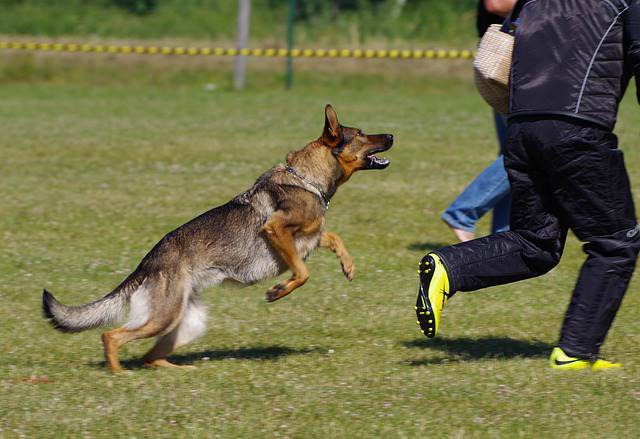How Long Do Jack Russell Terriers Live (8 Tips That Matters)

How long do Jack Russell terriers live is a common question among dog lovers who adore Jack Russell terriers.
Since Jack Russell terriers are healthy and long-living breeds they get their old age with certain issues.
Considering they stay there are certain factors that influence how long and healthy they may live, which we will be discussing in this post.
Before we continue let me quickly answer your question about how long Jack Russell terriers live in a simple way you can understand…
How long do Jack Russell terriers live
With continuous routine medical examinations, high-quality dog food, and basic care, both healthy male and female Jack Russell terriers will typically live for 16 years or longer.
How long a Jack Russell terrier lives partly depends on their owners who can give them a long life span.
You also have a significant part to play in carrying out specific tasks if you want your Jack Russell terrier to live longer.
Your Jack Russell terrier will live as long as it possibly can with the aid of this group of activities, which I will highlight at the conclusion of this piece.
Let’s quickly look at some common factors that might influence how long Jack Russell terriers live.
Factors that influence Jack Russell’s life span
Some of the most common elements that affect a Jack Russell terrier’s longevity are those listed below:
1. Genetic influences
Like all living things, Jack Russell terriers inherit traits that affect how long they live from breeding them.
If the parents of the Jack Russell terrier live into old age, there is a probability that the Jack Russell puppies will as well.
Since genetics and illnesses like heart disease and asthma can regrettably be passed on to puppies, you should get your Jack Russell terrier from a reputable breeder.
These genetic abnormalities have a significant influence on a Jack Russell terrier’s lifespan and are passed on from parents to their children.
This is why we advise getting your Jack Russell terrier puppy checked up by a veterinarian and buying or adopting it from a reputable breeder.
2. Environment influence
The lifespan of Jack Russell terriers, particularly those that suffer from separation anxiety, can be impacted by high levels of stress, sadness, and anxiety.
Loud sounds, other animals, being hated by their people, and several other things can all be contributing factors.
While it is doubtful that you will be able to go to fully stress-free locations with your Jack Russell terrier, you can educate them on how to handle anxiety.
Give them toys, ensure they get adequate sleep, and be around when they might be worried.
When Jack Russell terriers are content or relaxed, positive hormones are generated, and these hormones extend the life of the breed.
3. Hormonal influence
A neutered Jack Russell has a higher chance of leading a healthy, happy life, which might lengthen its lifetime.
This is true because a neutered Jack Russell terrier experiences fewer hormonal fluctuations than a non-neutered Jack Russell.
By being neutered, Jack Russell terriers may fulfill their reproductive needs without experiencing any problems that can shorten their lives.
If you don’t want to get involved in breeding you should neuter your Jack Russell terrier from the puppy stage.
4. Disease influence
The bulk of the health issues that Jack Russell terriers are known to have caused them to live shorter lifetimes.
Among the most prevalent medical conditions are polycystic kidney disease, progressive retinal degeneration, and urinary tract infections.
In addition to urinary tract infections and gum disease, this breed is predisposed to digestive and cancer problems.
If not adequately addressed, controlled, or avoided, any of these health issues can significantly shorten the life expectancy of Jack Russell terriers.
5. Breed influence
In comparison to the majority of crossbred Jack Russell terriers from ill breeds, purebred Jack Russell terriers often have longer, healthier, and happier lives.
Most Jack Russell terriers are less susceptible to diseases than a crossbreed due to years of selective breeding.
Since they may have inherited characteristics from parents during the crossing, a purebred Jack Russell terrier will outlive a mixed-breed Jack Russell by a considerable margin.
For this reason, you should only purchase a Jack Russell terrier from an established breeder who has a history of creating wholesome offspring.
To avoid unneeded health issues related to mixed breeds, always get your Jack Russell terrier from an established breeder.
6. Nutritional influence
If given substandard dog food a Jack Russell terrier’s lifespan is drastically diminished.
In order to give the right diet to your Jack Russell terrier, we strongly advise that you get in touch with your veterinarian.
The food you give your Jack Russell pups is different from the diet you feed an adult or senior dog, which is an essential distinction to keep in mind.
A specific meal must be used during each stage of life, and a veterinarian should recommend it.
In actuality, a poor diet causes Jack Russells to develop adverse health issues, which may shorten their lifespan.
7. Medical check-ups influence
When ill, Jack Russell terriers are unable to communicate. Terrible feelings are frequently kept hidden by Jack Russell terriers.
Most of the time, it is already too late when a Jack Russell terrier owner recognizes that something is wrong with their dog.
This raises your likelihood of identifying issues at a good time to address them.
Make sure your Jack Russell terrier has had all of its shots.
Give your pet’s annual checkups a priority. This aids in the provision of preventative treatment and the early identification of prospective problems.
8. Exercise influence
Jack Russell terriers are hyperactive dogs that need lots of exercises and mental stimulation.
If you don’t offer enough exercise and mental stimulation activities chances are that your Jack Russell terrier may become obese.
Obesity comes with lots of other health challenges that can affect the overall life span of Jack Russell terriers.
How to prolong Jack Russell terrier life expectancy
Here are some usual ways to make a Jack Russell terrier live longer:
1. Provide regular exercise

Because Jack Russells are hunting dogs, regular exercise and mental stimulation activities are among the most crucial aspects of their lives.
A well-balanced diet, regular exercise, and enough mental stimulation can all help your Jack Russell terrier live a longer life.
The cardiac muscles of Jack Russell terriers pump more effectively when they are regularly active and engaged in mentally stimulating tasks.
Jack Russell terriers benefit from exercise because it lowers stress, boosts endorphin levels, and aids in mood regulation.
Read more: 11 Tips On How To Tire Out a Jack Russell Terrier.
2. Avoid your Jack Russell getting dehydrated
Jack Russell terriers are prone to dehydration, which some owners contribute to by failing to provide adequate and clean water for their puppies.
Dehydration can shorten the life of your Jack Russell terrier by causing preventable health problems.
Make sure your Jack Russell terrier has access to clean water by placing it where the dog can see it.
Dehydration can result in dry skin, internal organ damage, and shedding, all of which are preventable health issues.
3. Avoid your Jack Russell getting stressed
The devoted companions known as Jack Russell terriers enjoy spending time with their owners this can help them avoid unnecessary behaviors.
If a Jack Russell terrier is left alone for an extended period of time, they may get aggressive or experience separation anxiety.
As a result, by minimizing stress, you might be able to increase the lifespan of your Jack Russell terrier.
Don’t forget to love and care for your Jack Russell to keep them content and active.
By giving your Jack Russell terrier the proper care and attention and avoiding any sorts of stress and worry, you may be able to extend their life.
4. Provide high quality dog food
One of the most crucial aspects of a Jack Russell terrier’s existence is high-quality dog food.
Health problems brought on by inadequate diet shorten life expectancy.
Giving Jack Russell terriers high-quality food is an easy way to extend their life.
Given that one of the main factors contributing to health issues in dogs is inadequate nutrition, your Jack Russell requires nutrient-rich diet.
Make sure your Jack Russell terrier puppies get a healthy diet that is rich in protein, vitamins, and minerals.
No matter what age your Jack Russell is, you may always see your veterinarian for advice on the ideal diet.
Given that both dry and wet food are wholesome, your Jack Russell can eat either one. However, if you have any money, put it toward a wet diet.
5. Keep human food away from your Jack Russell
Jack Russell terriers are frequently fed from their owners’ plates without their knowledge.
All meals are not suited for your Jack Russell terrier, despite the fact that it’s a lovely gesture.
The longevity of your Jack Russell may be shortened by gastrointestinal problems brought on by an excessive intake of human food.
Follow a qualified veterinarian’s feeding instructions to the letter.
If you notice your Jack Russell terrier has a health concern, take care of it straight away.
The following human foods are not recommended for Jack Russell terriers:
- Alcohol products
- Candy
- Salt
- Garlic
- Onion
- Chocolate
- Avocado.
6. Provide a dog-friendly environment
The illnesses that your Jack Russell terrier contracts are greatly influenced by the environment in which he lives.
If you maintain an unclean environment, pests or worms that are harmful to your Jack Russell’s health may be transmitted.
For instance, worms can be transmitted to your Jack Russell through infected mosquito bites, and this bug can reproduce close to your home on stagnant or potted water logs.
You can help prolong the life of your Jack Russell by providing a clean, healthy environment and teaching them proper hygiene practices.
7. Watch out for early signs of illness
Jack Russells are susceptible to a variety of illnesses, many of which exhibit warning signs.
So, as soon as your Jack Russell terrier starts acting strangely, take him to the veterinarian.
You may help yourself identify any possible issues by keeping an eye on your signs of illness.
If you can anticipate an illness in your Jack Russell in advance by paying attention to him, you might be able to treat it before it’s too late.
8. Regular medical check-ups
Make sure your Jack Russell terrier was fully immunized and up to date when you first got him.
Make yearly examinations for your pet a top priority. This facilitates the early detection of potential issues and the delivery of preventative care.
Bringing your Jack Russell terrier in for routine checkups at the vet is the greatest way to stay informed about her health.
Regular medical exams will aid in the early identification of any potential health concerns, extending the life of your Jack Russell.
Jack Russell terrier life cycle
Similar to other dog breeds, Jack Russell terriers experience the following life stages:
The puppy stage
In case of having litters Jack Russell terriers frequently have 5 to 6 puppies, which is typical for most dog breeds.
The Jack Russell Terrier’s size, age, and health are determining factors in how long they live down their life span.
During the puppy stages, the eyes and ears of the newborn Jack Russell terrier puppies are firmly closed, and they have a coarse coat.
These puppies will start to enter the socializing period as they develop, and open up their eyes, and ears.
The encounters and socialization of the pups with humans and other canines will have a big influence on how they interact in the future at about 1 to 2 months.
The adolescence stage
Jack Russell terriers’ puberty is known to start at five months of age.
At this age, the animal’s coat starts to fill out and its personality starts to emerge.
They will be considerably more autonomous during this stage, and you could even catch them acting disobediently.
Since Jack Russells have a lot of activity, training should start at this age to prevent behavioral problems later.
They will become sexually mature at roughly 7-8 months, but they are still not quite adults!
The adulthood stages
It’s unlikely that Jack Russell Terriers will grow very much after their first year because they are often fully grown and regarded as adults by this time.
They will be delighted to accompany you on your jogs and long walks.
Giving your Jack Russell the stimulation they need is important for maintaining their wellbeing.
The senior stage
This stage can be considered the end cycle of your Jack Russell terrier.
The senior stage starts from 9 years and above during which your Jack Russell terrier requires extra care.
The Jack Russell terrier’s senior stages come with their own old age problems.
I strongly advise you to stay close to your Veterinarian during your Jack Russell terrier’s senior stages or years.
What do Jack Russell terriers usually die of
Despite having a longer lifespan than many other dog breeds, Jack Russell terriers die due to certain health issues, including:
- Heart disease
- Leptospirosis
- Respiratory Issues
- Cancer
- Parvovirus


![How to Stop Aggression in Dogs [12 Strategies] Stop Aggression in Dogs](https://petcreeks.com/wp-content/uploads/2023/10/guard-dog-3494494_640.jpg)

![Can Great Pyrenees Be Left Alone [Helpful Tips] Can Great Pyrenees Be Left Alone](https://petcreeks.com/wp-content/uploads/2023/04/Can-Great-Pyrenees-Be-Left-Alone-768x555.jpg)

